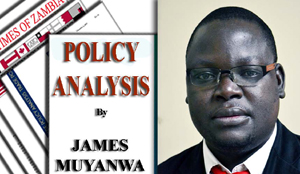 TODAY I want us to look at one of the available ways of hedging foreign exchange risk by companies and individuals in the country.
TODAY I want us to look at one of the available ways of hedging foreign exchange risk by companies and individuals in the country.
To effectively do that, I feature an abridged article by PETER SITAMULAHO who writes that: “Zambian companies are losing millions of Kwacha because of foreign exchange volatility.
While Zambian companies may not be able to stop the volatility in the short-term, they are at least able to hedge using over the counter forward exchange contracts or indeed exchange traded currency contracts.
Therefore, chief finance officers and finance directors should explain why they are not hedging against the risk. ‘
Hedging instruments are available in Zambia.
Forward exchange contracts (FEC) hedge against exposure by allowing the importer or exporter to arrange for a bank to sell or buy quantity of dollars, pounds or Rand at a future date, at a rate of exchange determined when the forward contract is made.
The customer will know in advance either how much Kwacha he will receive (if he is selling dollars, pounds or Rand to the bank) or how much Kwacha he must pay (if he is buying dollars, pounds or rand from the bank).
A FEC is an immediate firm and binding contract, between a customer and a bank, for the purchase or sale of a specified quantity of a stated dollar, pound and rand foreign currency, at a rate of exchange fixed at the time the contract is made.
It is entered into for performance (delivery of the dollar, pound or rand and payment for it) at a future time which is agreed when making the contract.
Exchange Traded Foreign Currency Derivatives can be used to hedge foreign currency risk.
Currency Futures contracts are standardised contracts for the sale or purchase at a set future date of a set quantity of currency.
A future represents a commitment to an additional transaction in the future that limits the risk of existing commitments.
The Bond and Derivatives Exchange has listed Kwacha/Dollar Contract and Kwacha/Rand Contract.
Currency futures contracts provide a way to hedge the risk to which a currency exposes the investor or to speculate when the belief is that the exchange rates will change.
Currency Futures offer affordable and cost-effective means to become exposed to foreign exchange positions. Buying or selling a currency is easily done electronically.
A currency future is a standardised contract of a standard quantity of a specific underlying asset. One contract is 1 000 units of the foreign underlying currency.
So one currency futures contract on the Kwacha/United States dollar/will represent US$1 000 and the Kwacha /dollar contract is listed on BaDEx.
Performance by the counterparties to a futures contract is guaranteed via CSDZ (BaDEx’s clearing house) for all futures contracts that are traded.
Standardised contracts traded on a licensed, regulated exchange like BaDEx enable the risk of both parties to be reduced and also increase the liquidity in the market.
Liquidity refers to the ability of market participants to get in and out of their positions when they choose to.
Prices for each contract are negotiated between buyers and sellers via the Automated Traded System (ATS) electronic order matching platform.
Currency futures brokers input orders which are automatically matched on the basis of time and price priority.
The Kwacha/dollar contracts expire on a predetermined future date in March, June, September and December.
For the futures contracts traded on BaDEx the transaction costs are generally lower than other hedging methods, futures are tradeable and can be bought and sold easily.
There is pricing transparency unlike forward contracts where prices are set by financial institutions.
Customers can approach banks to enquire about hedging instruments or the Bond and Derivatives Exchange Zambia PLC.
“Finance Bank and BancABC Zambia are brokers of BaDEx and can provide currency futures to customers.”
The author is Bond and Derivatives Exchange Zambia Plc chief executive officer based in Lusaka.
For comments call: 260 0955 431442, 0977 246099, 0964 742506 or email:jmuyanwa@gmail.com.






